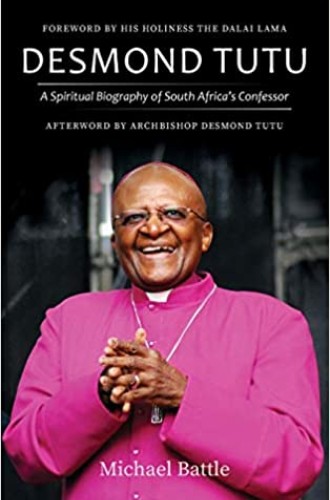Desmond Tutu lived astride one of Christianity’s great failures—and one of its great successes. At the pinnacle of White disdain for South Africa’s original residents, the country’s government enforced, from 1948 to 1994, a policy of sheer apartheid. Black and White residents were made to live separate lives, the latter privileged and wealthy, the former beaten down and impoverished. All this took place, moreover, under the cloak of Christian religion. White South Africans saw themselves divinely chosen to occupy South Africa and therefore fully justified in forcibly confining Black residents to reservations. Yet Christian consciousness slowly resisted, slowly came not only to repudiate the rationalization that undergirded apartheid but also to rally the country toward social and political renewal. Tutu was a key figure in both imagining and advancing the renewal process.
From the start, Tutu’s family history and circumstances infused his life with gospel grace and conviction. At the same time, he knew apartheid’s pain. His family was, for a while, fortunate to live in the Black community of Sophiatown, where for decades there had been an unusual degree of freedom, including interaction with White residents such as the Anglican monks who lived and preached there. One of these monks, Trevor Huddleston, impressed the young Tutu when, while walking by their home, he regularly raised a hat to Tutu’s washerwoman mother. Tutu would later write that people like Huddleston (who himself came to be widely known) “made us realize that we too count, we too matter in the sight of God.”
But then a hammer blow. The South African government forcibly removed Sophiatown’s Black residents to Soweto, bulldozed the town, and declared it a Whites-only area.





